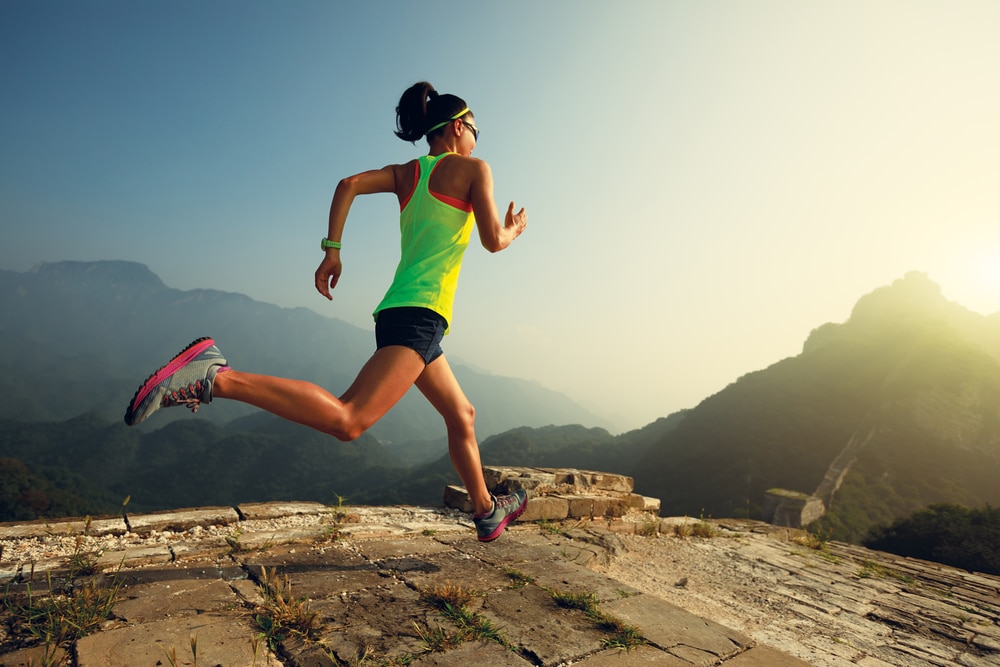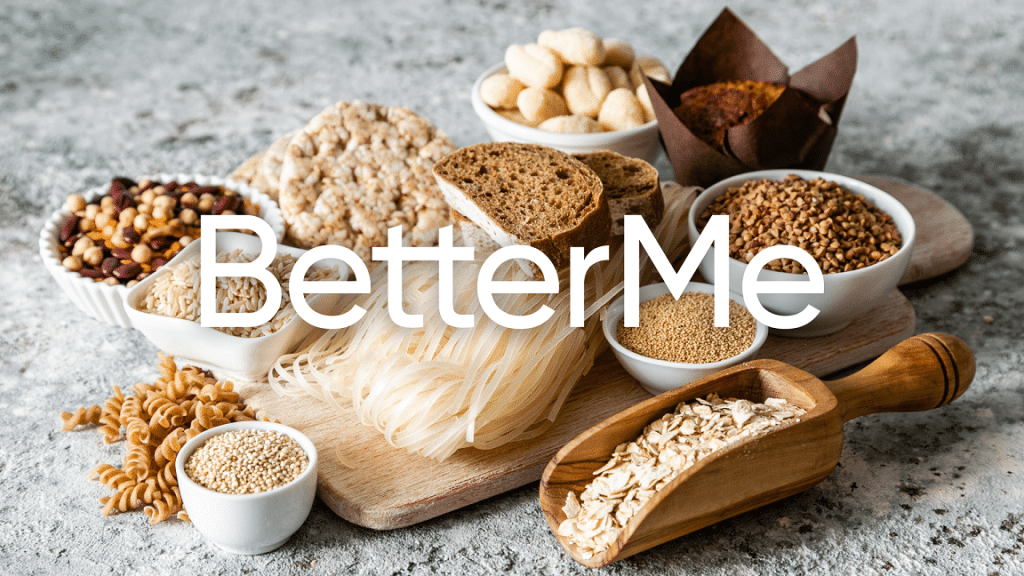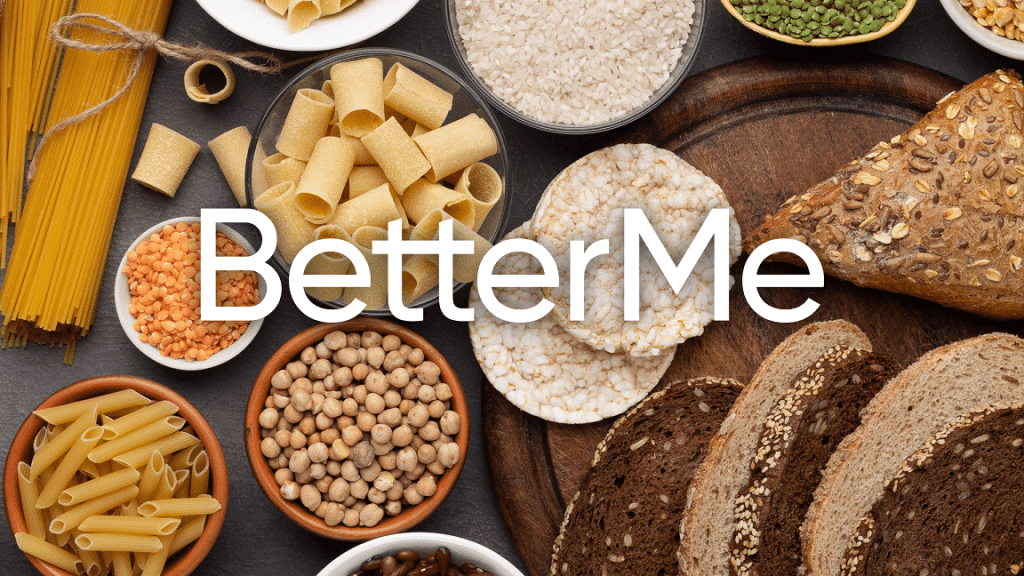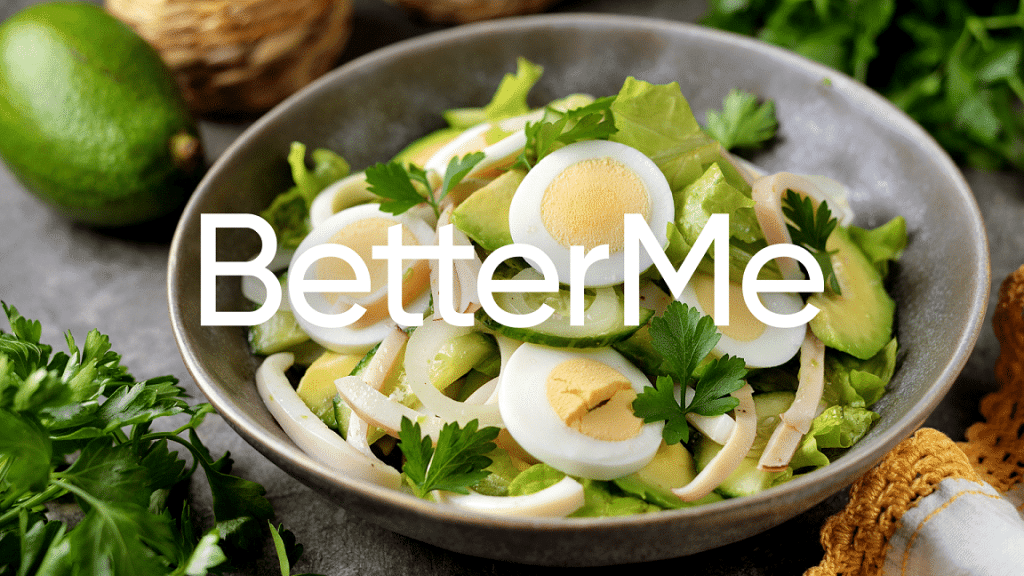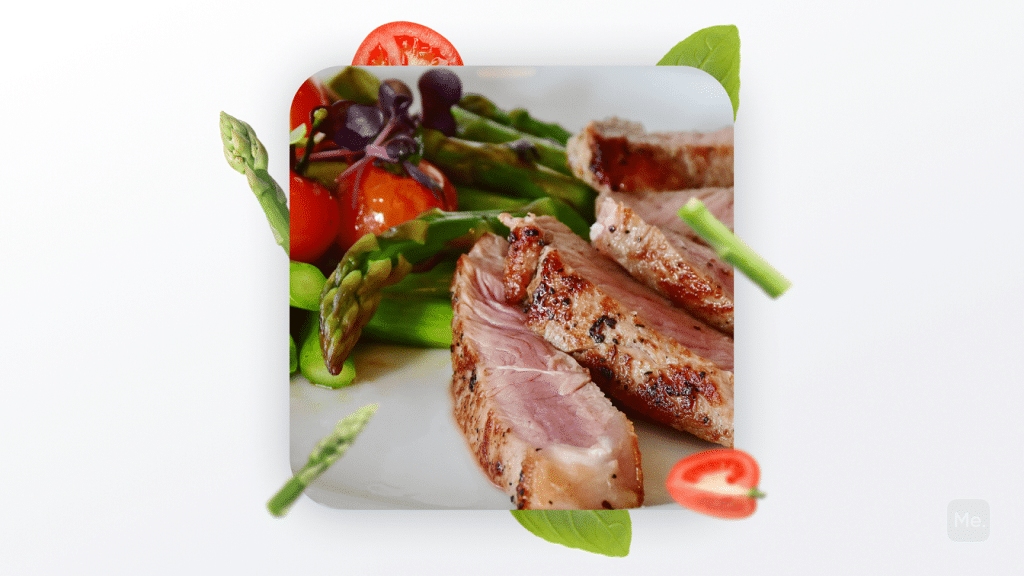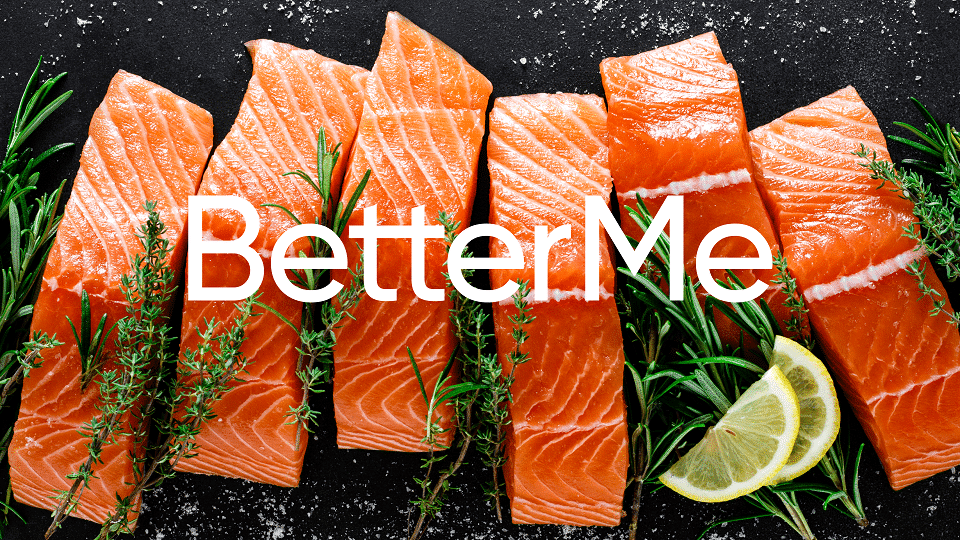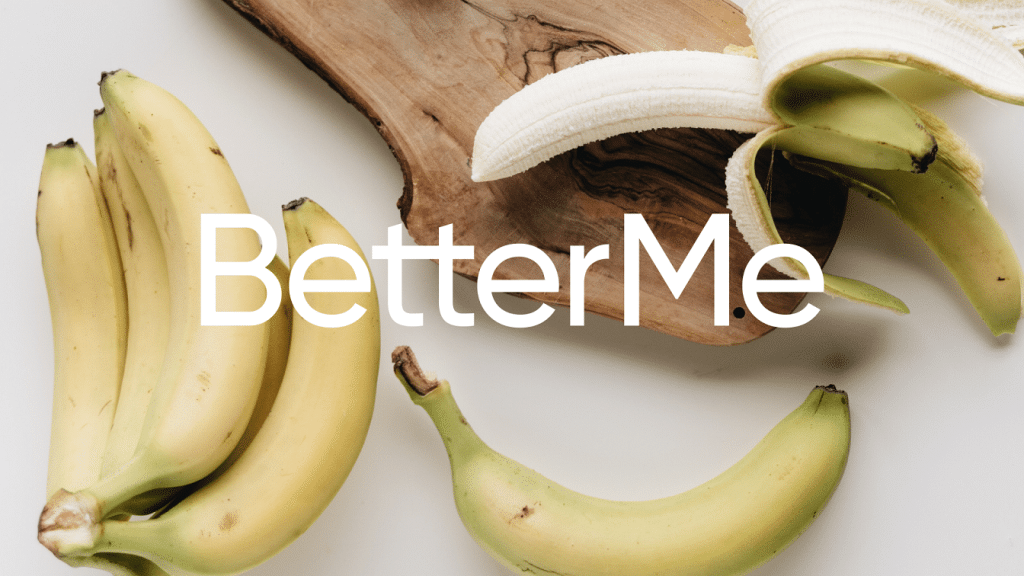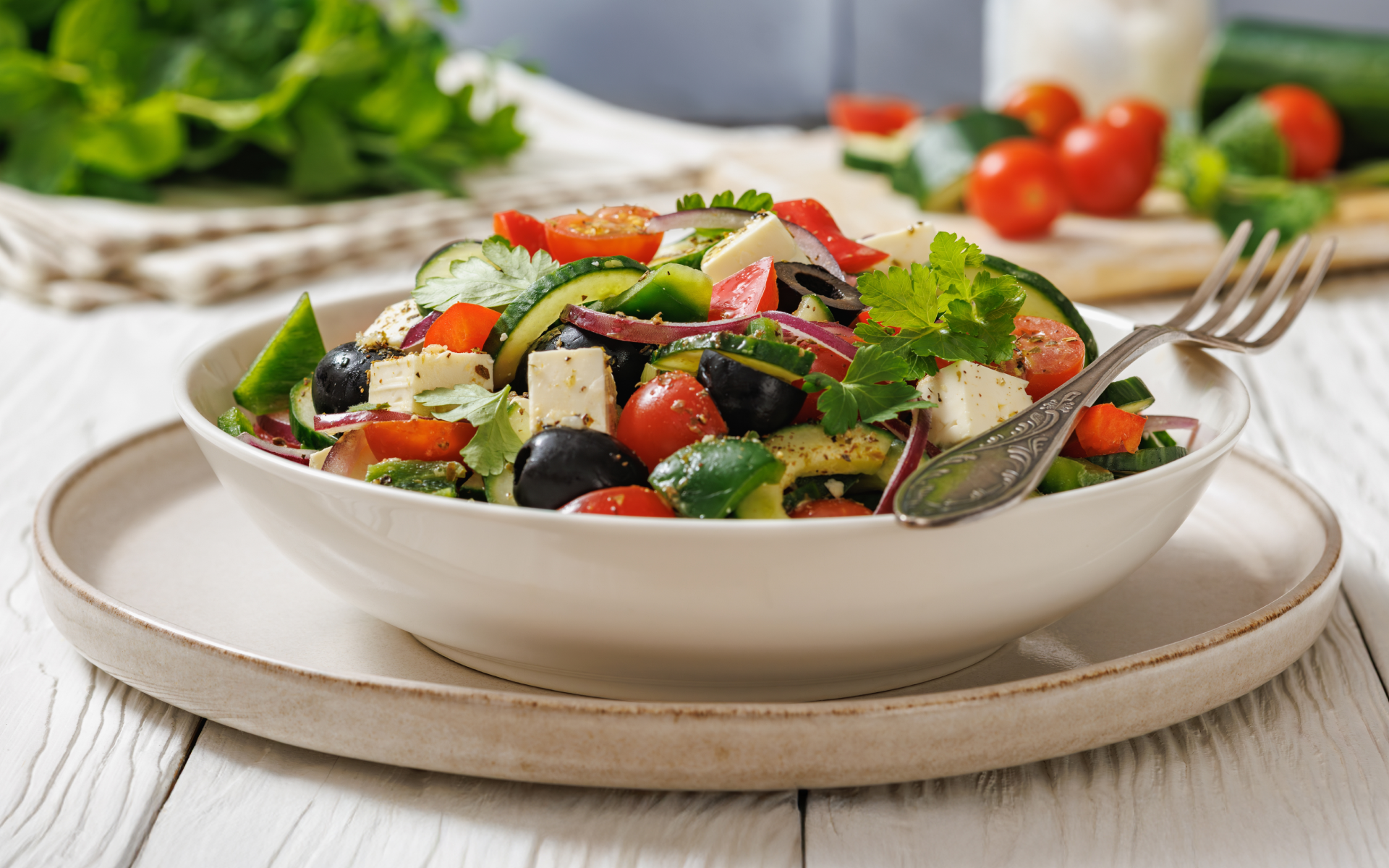Running is an excellent form of exercise that helps you relax and take your mind off the daily hurdles. Every minute you spend jogging in the park or running a 10k race counts as time spent making your life better. However, to get maximum health benefits from this exercise routine, such as losing considerable weight, that will help prevent numerous health conditions, you need to follow the runner’s diet to lose weight.
Get your personalized
meal plan!
Assumptions may trick you into believing that whatever you eat is acceptable as long as you get into exercise. However, that may not be true because several factors contribute to shedding unwanted fats, and the only way to achieve your goal is to make healthy lifestyle choices. Combining running and a proper runner’s diet to lose weight will get you closer to that perfect runner’s body that you desire. So, what should you eat and drink for running to be effective?
Runner’s Diet To Lose Weight- Understanding The Basics
What is the best diet for long-distance runners or short-distance runners? To draft the diet, you need to understand the foods you should eat to sustain your performance. At the same time, applying the right combination of nutrition principles ensures that your body is fuelled at all times (17). This keeps you fit throughout the running period and may also help you lower your body fat.
Read More: Healthy Breakfast For Athletes That’ll Gear You Up For A Hectic Day
The Macronutrients In A Runner’s Diet To Lose Weight
Food can be divided into three essential macronutrients, each playing an essential role in a runner’s body.
-
Carbohydrates
Carbs are a reliable energy source, and you need plenty if you are going to be at your best in the upcoming race. Many runners include carb-rich foods such as rice and potatoes in their diets before running. However, before tossing any carbs on your plate, you need to have some basic understanding of the physiological processes that facilitate carbohydrate breakdown into energy.
Glucose happens to be the primary energy source for the body, but it is not the only one. According to a publication in the New York Times, most of the carbohydrates go to the liver and muscles to be stored as glycogen (23). Running triggers the body to break down glycogen into glucose for energy and also to release fat. However, fat is not as efficient an energy source as glucose, meaning that your body must work harder to burn it, or the body will opt for carbohydrates (glucose) because it is the fastest and easiest route requiring the least immediate energy (8). With good running exercises and training, your muscles get better at energy management, especially if you are an endurance athlete who runs many miles.
In a low-intensity exercise, the body tends to use more fat for energy (28). However, as you shift from low to medium and high-intensity training, the body turns to carbs as the primary energy source. Some of the rich-carbohydrate foods to try out include:
-
Whole Grains
Amaranth, bulgur, and quinoa are great whole grain options if you want to steer clear from the potential weight gain associated with pasta, sugary drinks, white bread, etc (2). Besides being rich sources of carbohydrates, whole grains provide the fiber needed to support smooth digestion and prevent overeating.
-
Sweet Potatoes
Sweet potatoes are some of the most underestimated carb sources, yet they have an impressive nutritional profile that could be highly beneficial to the runner’s diet plan (24). For instance, a medium-sized (5″ long) raw sweet potato (130 grams) contains roughly 26 grams of carbohydrates and about 112 calories (24). Also, sweet potatoes are rich in vitamin A, potassium, and other nutrients that support vision, cardiovascular health, and overall well-being. If sweet potatoes were not in your previous diet, you should consider adding them to your next recipes.
-
Rolled Oats
Running is an aerobic exercise that keeps your heart pumping. To maintain a healthy heart, you need a diet that incorporates a substantial amount of fiber. A cup of plain, dry oatmeal is rich in dietary fiber (contains about 39%) (22). Fiber helps your body maintain peak energy levels and also slows down the rate of glucose absorption into your bloodstream. Rolled oats are also packed with B vitamins, which aid in stress management and energy boost.
-
Rice Bran
Rice bran is an excellent replacement food to turn to if you are looking for a substitute for refined flour in bread and other baking recipes. 28 grams of rice bran contains about 13.9 grams of carbs and more than 5.9 grams of fiber (21). It also provides about half the RDA for magnesium, which directly influences the release of ATP during metabolism.
BetterMe app will provide you with a host of fat-frying fitness routines that’ll scare the extra pounds away and turn your body into a masterpiece! Get your life moving in the right direction with BetterMe!
-
Pasta (Whole Wheat)
The pasta looks delicious on your plate when served with some veggies for color and protein to help resist the urge for another serving. However, do not let its appearance underestimate the amount of energy you can derive from pasta.
A cup of cooked pasta contains almost 37 grams of carbohydrates and approximately 6 grams of dietary fiber in whole wheat pasta (33). Besides, the insoluble fiber in whole wheat pasta helps reduce the risk of diverticular disease, colorectal cancer, prevents constipation, and the development of small folds and hemorrhoids in the colon.
How many carbs should I consume? Each athlete has their own nutritional needs. For instance, an endurance athlete requires about 2.5-4.5 grams for every pound of body weight each day (or obtain 55-65% carbs from the diet. A moderate athlete requires 2.5-3 grams for every pound of body weight, while ultra-endurance athletes need more than 4.5 grams/pound (1).
Since you cannot fully load your muscles with one meal, it is essential to start carb loading two to three days before a race. If you are running to lose weight, it is essential to monitor the duration of your workouts. Running beyond 90 minutes depletes your energy stores, and that is why you have to eat something during the race to keep your body replenished. Aim for 40-60 grams of carbs per hour (1). Eating a diet rich in carbs helps you achieve better training performance and better results by maximizing your stored glycogen which you will use as energy during your run.
-
Proteins
Protein is an essential macronutrient in a runner’s diet. It consists of amino acids, which the body uses to build muscles, regulate other functions, and power the immune system (27). Although there is little evidence to support the assumption that high protein intake helps endurance and strength training, it is safe to say that it indirectly influences physical performance by providing the components needed for building muscle.
According to the Revised Reference Values for the Intake of Protein publication in the Annals of Nutrition and Metabolism Journal, the healthy protein requirement for adults is 0.8 to 1 grams per kilo (per 2.2 pounds) of body weight (20). However, when it comes to athletes, the protein requirements are much different. One may need to consume much more than the amount of protein consumed by an average person (about 1.2-2g of protein per kilogram of your body weight) (13) (7).
Most people already consume more protein than required by the body. Therefore, it shouldn’t be difficult to shift to healthy protein quantities since no drastic changes are necessary. Some protein-rich foods include (7):
-
Eggs
Eggs are not only a rich source of proteins but also contain the most readily available protein (in an easily digestible form) compared to any other source (7). 1 medium egg contains about 6g of protein, therefore, you can take a healthy omelet for breakfast or as a recovery snack.
Read More: 3 Day Egg Diet: Can It Up Your Protein Intake And Kick Weight Loss Up A Notch?
-
Lean Meat
As a runner, iron will be useful to your body as it helps deliver sufficient oxygen to the muscles during workouts and supports your overall health (16). Lean beef comes in as an iron-rich food that deserves a place in your diet. Beef is also rich in B vitamins, which aid in the conversion of carbohydrates into the fuel required to power you through a run (18). You can take a palm-size portion of lean cuts of beef such as fillet steak, sirloin, flank, or 95% lean minced beef (18).
Chicken breast, on the other hand, is a rich source of lean protein often seen in a diet for runners who want to lose weight. It helps build lean muscle, contains immune-boosting zinc to strengthen you as you run, and iron to enhance the functioning of your oxygen-supplying bloodstream (18).
A 3-ounce chicken breast contains 128 calories and 26 grams of protein (10). It also contains Vitamin B6, selenium, niacin, and phosphorus (10). Selenium aids in DNA production and protects the body from damage caused by infections and free radicals (26). Note that it is the skin that contains most of the unhealthy saturated fat, therefore, go for boneless or skinless pieces. Alternatively, you can cook with the skin on, then remove before eating (18).
-
Canned Tuna
Canned tuna contains a load of health benefits for runners, especially those interested in losing weight (9). It is low in fat and high in protein, a rich source of vitamins B6 and B12, and omega-3 fatty acids. Vitamin B12 aids in the formation of new red blood cells and the prevention of anemia (6). The high levels of omega 3 fatty acids help balance omega-6 fatty acids and may help improve cardiovascular health (19). Besides, omega-3 helps in preventing vision problems by contributing to the overall health of the retina. A 6-oz canned tuna contains about 40 grams of protein.
-
Fats
Eating fats may sound more like a slip in the wrong direction, especially for runners trying to lose weight. Although not a mandatory requirement, healthy fats should be part of the diet for runners who do not want to shed pounds, as well as those who want to. The Dietary Guidelines for Americans states that one should keep the total fat intake 20-35% (11). Most of the fats, in this case, should come from polyunsaturated and monounsaturated fatty acids such as nuts, vegetable oil, and fish.
There are several options of a healthy fats diet for runners who want to lose weight that come with additional nutrients to help maintain a healthy body (12). Dietary fat helps your body absorb vitamins and is a backup source of fuel when carbohydrates deplete (14). These include:
-
Avocado Oil
Oil pressed from whole avocados, unlike many vegetable oils, is suitable for high heat cooking, thanks to its high smoking point (about 520°F) (25). When used in salads, it helps in the absorption of nutrients from the vegetables (5). Avocado oil is also rich in Vitamin E, which protects the cells against aging and cancer (5). Eating whole avocados also provides the same benefits plus a good amount of fiber.
Canola oil, like avocado, has a moderately high smoking point (31). It is also packed with monounsaturated fats that help lower LDL levels alongside heart diseases.
-
Olive Oil
Olive oil is obtained from pressing or grinding olives that have been used for years in preparing all kinds of dishes, including salads, pasta, bakings, and much more. It has been associated with several health benefits, such as lowering blood pressure, risk of diabetes, and reducing the risks of stroke (29). It is also rich in antioxidants, which help reduce inflammation in your body. Always pick the extra virgin olive oil (smoke points of about 325°F for extra-virgin olive oil to about 465°F for extra-light olive oil), which has gone through the least processing. It is rich in phytochemicals, which may help fight cancer and heart diseases (25).
The Role Of Fruits In A Runner’s Diet To Lose Weight
Unlike processed options, the sugar in fruit is bundled with fiber, vitamins, minerals, and antioxidants (3) However, right before a run, you should opt for fruits such as bananas, apples, and peaches that are low in fiber (too much fiber may not be good sitting in the stomach during a race or training session).
-
Bananas
Bananas present a low-fiber option (30). They contain an easily digestible form of carbohydrates (low-glycemic carbohydrates) to provide energy for running. They are also rich in potassium to replace the electrolytes lost while running.
-
Frozen Berries
Every time you go out for a run, you put your body under physiological stress, which triggers the self-healing abilities and growth response, according to registered dietitian nutritionist Jessica Crandall (4). Your body uses oxygen to break down food for energy, leading to oxidative damage. Crandal further adds that it is essential to fight oxidative damage with antioxidants (4).
Berries happen to a rich source of antioxidants, more so when frozen (4). They are richer in minerals and vitamins than fresh berries because frozen berries are picked and sealed during their nutritional peak. Crandall recommends that you eat frozen berries after your workouts because that’s when the body quickly absorbs nutrients (4).
BetterMe will keep you laser-focused on your weight loss journey! Nutrient-packed meal plans, fat-blasting workouts, galvanizing challenges and much more. Try using the app and see for yourself!
What Is A Good Diet For Runners?
Even after knowing what to eat and why, on a runner’s diet, bear in mind that identifying what works for you may not be easy as it seems. For instance, there are significant differences in behavioral changes between a runner who wants to lose weight, a runner who wants to keep fit, and a professional runner. After massive changes in your eating habits, you may find that not every diet on the internet works. The secret to a successful transformation is enjoying the healthy foods that you eat – and that is the best diet for runners.
Always:
-
Regulate Your Eating Habits
Running is an energy-demanding exercise, and you need more energy to replace what was lost. You can use an online calculator to determine how many calories you burn per session. Depending on gender and size, your calorie burn will be different from others. Choose nutritious sources of energy and stick to them.
-
Track Your Calories
Are you trying to lose weight by running? Choosing a good running program may help with muscle building, but the calories you eat matter too. Runners often overestimate their caloric needs, leading to weight gain instead of loss, so you should pay attention to what you eat to avoid overeating.
-
Remember Your Goals
Do you want to sustain your energy for running, or do you want to lose weight by running? Running 30 minutes helps you burn 200-500 calories depending on how far and how fast you run. Running 30 minutes may help your body become more efficient, lung, and heart development (34).
Note:
According to the New York Times, long-distance running may not be an effective weight-loss plan (14). Even though one mile of running burns about 100 calories, it does not automatically translate to a pound for every 35 miles you run (1 pound of fat = 3500 calories). Running may increase appetites, particularly for new runners because the body may want to maintain its weight homeostasis, therefore, pumps out hormones that trigger eating (14). This means that to lose weight, do not respond to such signals by eating more, but rather know how many calories you burn and how many you consume.
Conclusion
To attain your weight loss goals, running is incomplete without a properly calibrated runner’s diet plan. Food is fuel for the body, therefore, a runner’s diet to lose weight may draw you closer to your weight loss goals. Remember to consult your doctor or nutritionist before trying any meal plan.
DISCLAIMER:
This article is intended for general informational purposes only and does not address individual circumstances. It is not a substitute for professional advice or help and should not be relied on to make decisions of any kind. Any action you take upon the information presented in this article is strictly at your own risk and responsibility!
SOURCES:
- 3 things runners need to know about carbohydrates (2018, news.sanfordhealth.org)
- 6 healthy whole grains to try tonight (2020, nbcnews.com)
- 7 of the Healthiest Fruits You Can Eat for Better Performance (2018, runnersworld.com)
- 8 foods every runner needs to lose weight (2016, wtop.com)
- Avocado Oil: Is It Good for You? (n.d, webmd.com)
- Best vitamin B12 foods: Supplements and RDA (2020, medicalnewstoday.com)
- Best sources of protein (n.d, bbcgoodfood)
- Burning Fat Vs. Glycogen (2019, livestrong.com)
- Canned Tuna Recipes for Runners (2015, runnersworld.com)
- Chicken Breast Nutrition Facts and Health Benefits (2021, verywellfit.com)
- Fat: What You Need to Know (2014, my.clevelandclinic.org)
- Fueling strategies for distance runners (2018, mayoclinichealthsystem.org)
- How to Calculate Your Protein Needs (2021, verywellfit.com)
- How to Feed a Runner (n.d, nytimes.com)
- How Much Fat Should Runners Eat Per Day? (2020, runnersworld.com)
- Iron Biology in Immune Function, Muscle Metabolism and Neuronal Functioning (2001, academic.oup.com)
- Meal plans for runners (2020, bbcgoodfood.com)
- Meat, your maker: 4 meats runners should eat (2015, runnersworld.com)
- Omega-3 Fatty Acids: An Essential Contribution (n.d, hsph.harvard.edu)
- Revised Reference Values for the Intake of Protein (2019, ncbi.nlm.nih.gov)
- Rice bran, crude ( n.d, nutritiondata.self.com)
- Rolled oats (n.d, eatthismuch.com)
- Secrets of Endurance: Eating to Go (and Go and Go) (2006, nytimes.com)
- Sweet Potato Nutrition Facts and Health Benefits (2020, verywellfit.com)
- The best oils to use for cooking, according to nutritionists (2019, nbcnews.com)
- The Importance of Selenium to Human Health ( n.d, core.ac.uk)
- The Role of Protein and Amino Acids in Sustaining and Enhancing Performance (1994, ncbi.nlm.nih.gov)
- Turning Your Body Into a Fat-Burning Machine (2020, verywellfit.com)
- USING OLIVE OIL IN YOUR DIET MAY PREVENT A STROKE (2011, aan.com)
- What to eat and avoid on a low-fiber diet (2018, medicalnewstoday.com)
- Which type of oil should I use for cooking with high heat? (2021, mayoclinic.org)
- Whole grains: Hearty options for a healthy diet (2020, mayoclinic.org)
- Whole wheat pasta, cooked (n.d, eatthismuch.com)
- Your lungs and exercise (2016, ncbi.nlm.nih.gov)
